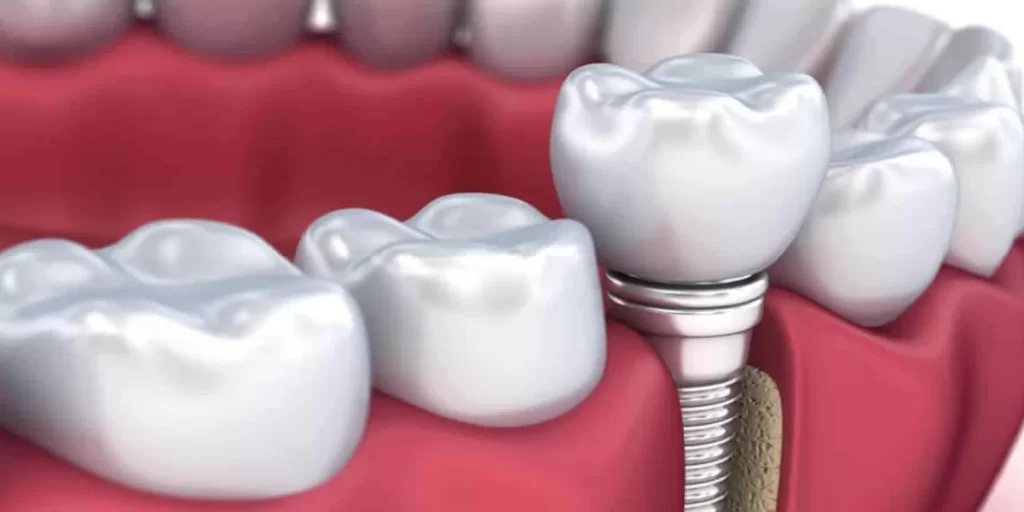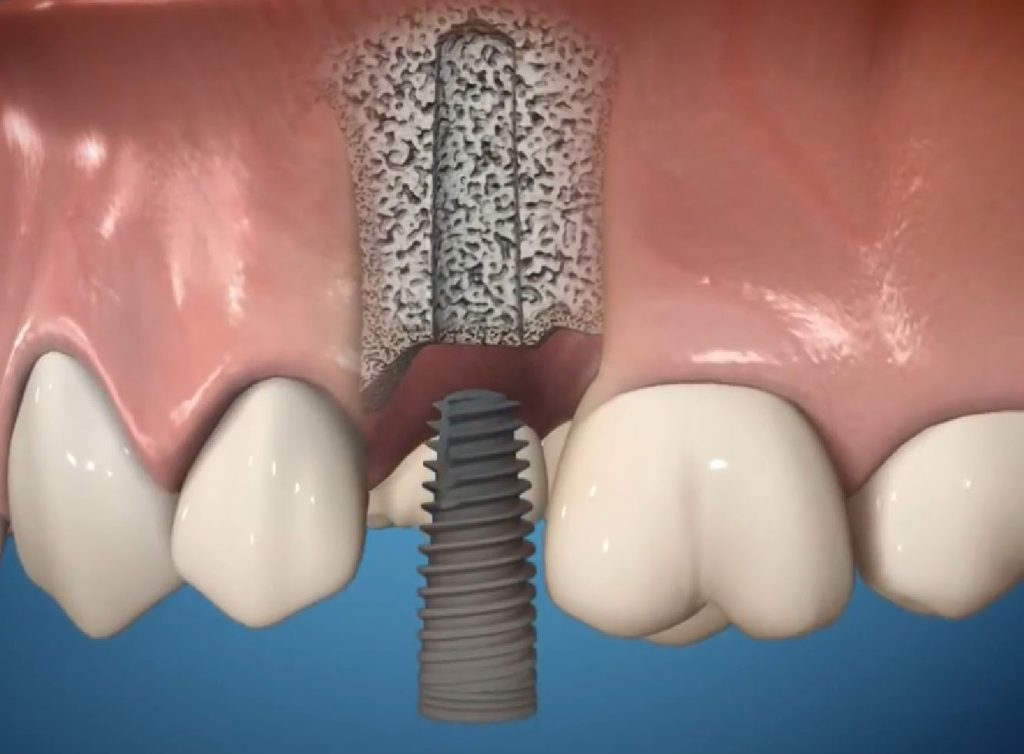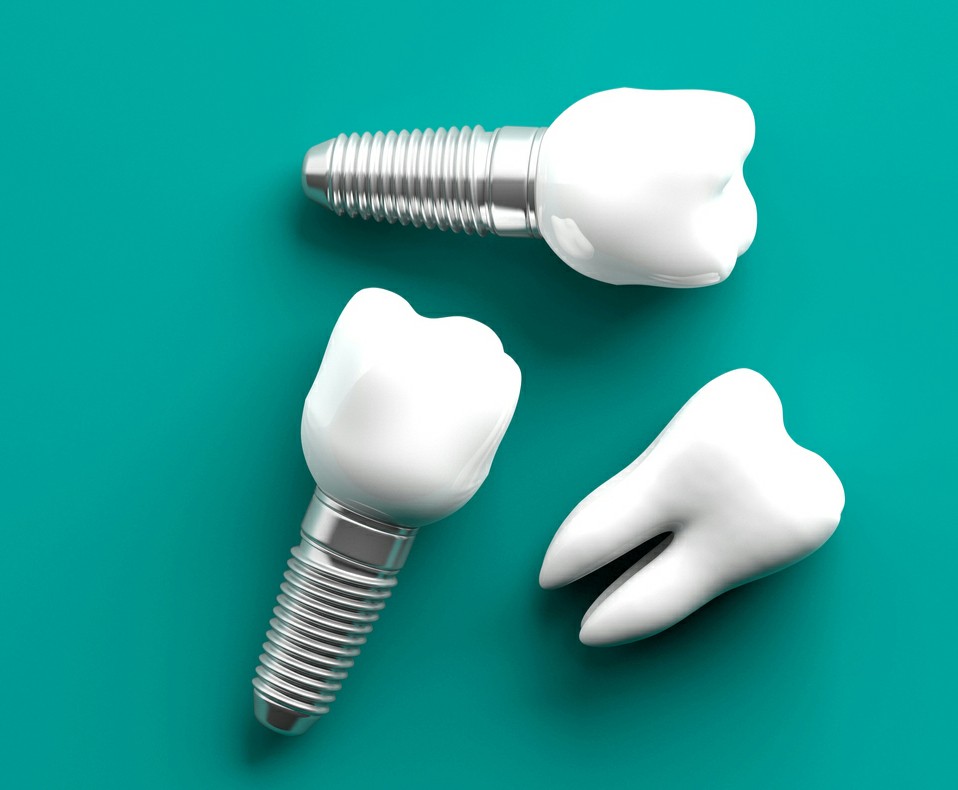
Oral and Maxillofacial Surgery is a field that involves the diagnosis and surgical treatment of various conditions affecting the soft tissues (such as cheeks, palate, tongue, lips, etc.) and hard tissues (teeth, bones) within the oral cavity. These procedures are performed under local anesthesia, general anesthesia, or sedation anesthesia in an operating room setting.
Treatment Methods
Dental Implant Treatment
What is an Implant?
Implants are inert materials placed into living tissue or an organ. They are used to treat patients who have lost natural teeth due to various reasons such as trauma, periodontal (gum disease), or decay. In cases of tooth loss, titanium or ceramic-based artificial roots are implanted into the jawbone, and fixed or removable prosthetics are then attached to them to restore function and aesthetics.

Implants can be used in cases of single missing teeth, patients who have lost their back teeth on one or both sides, and to support a few remaining natural teeth. They are also used in patients who have lost all of their natural teeth.
Patients who have lost their natural teeth for any reason desire a short treatment process and natural-looking replacement teeth at the end of it. Especially in cases of severely resorbed lower jaws, a total denture without implant support will lack stability. Patients often complain about the mobility of such a denture in their mouths. In such cases, the best solution that a dentist can offer the patient is implant treatment.
In cases of single tooth loss, a fixed prosthesis can be applied without touching the adjacent sound natural teeth.
Patients who are planning to receive implants undergo clinical and radiographic examinations. Based on these assessments, the type, diameter, and length of the implant, and later the type of prosthesis, are determined. Accordingly, the treatment duration can vary depending on different implant and prosthesis types, ranging from one day to six months.
Even if a patient has lost all of their natural teeth, if deemed appropriate by the dentist, it is also possible to create a fixed bridge prosthesis that is supported by implants and does not require removal.
The most important factor for implant placement is the amount of existing bone in the patient. Teeth are extracted due to advanced decay or gum disease, which often leads to significant bone loss. In such cases, bone augmentation, a procedure to add bone, is necessary to increase the volume of the bone. Various techniques are used for this purpose.
In today’s practice, successful results can be achieved with well-trained professionals using implants with appropriate indications. Otherwise, there is a risk of failure in the procedure.


The operation is performed under local anesthesia and is painless. After the operation, using pain relievers for one to two days and applying ice is usually sufficient to manage any discomfort. The stitches are removed 7 to 10 days after the operation. During this period, patients are advised to consume liquid and soft foods. After the stitches are removed, a temporary prosthesis is made over the implants to be worn during the period required for the final prosthesis to be completed. The maintenance of implants should be done with the same care as natural teeth.
Who Is Not Suitable for Implant Treatment?
Implants should not be placed in pregnant or lactating women. Individuals with advanced systemic diseases should be thoroughly evaluated. Diabetes poses a risk for implant procedures; however, controlled diabetic patients may be eligible for implants. It is also known that the success of implants is reduced in smokers. Individuals who habitually grind their teeth at night (bruxism) should be evaluated, and implant placement may be considered only after this condition is treated. Patients with hypertension should also be assessed carefully.
Surgical Extraction or Management of Impacted Teeth
Corrections made to the hard and soft tissues of the mouth to assist in prosthesis construction
Treatment of oral and dental pathologies such as cysts, tumors, etc.

When coming to your first appointment, bringing previously taken X-rays and documents related to
past treatments will provide us with detailed information about your treatment history.
The requested date and time, depending on our doctors’ availability, may vary.
Please wait for us to reach out to you for confirmation.

Özer Dental Clinic, located on Alaiye Street, one of the bustling areas of Alanya, provides dental health services with its team of expert dentists.
Dr. Özer | Hacet Neighborhood, Alaiye Street, B.Uyaroğlu Apartment, Unit: 60/A, 07400 Alanya, Antalya
ÖzerDiş ® owns the Klinik32 brand, copying this content without permission is prohibited. | Copyright © 2018 www.ozerdis.com